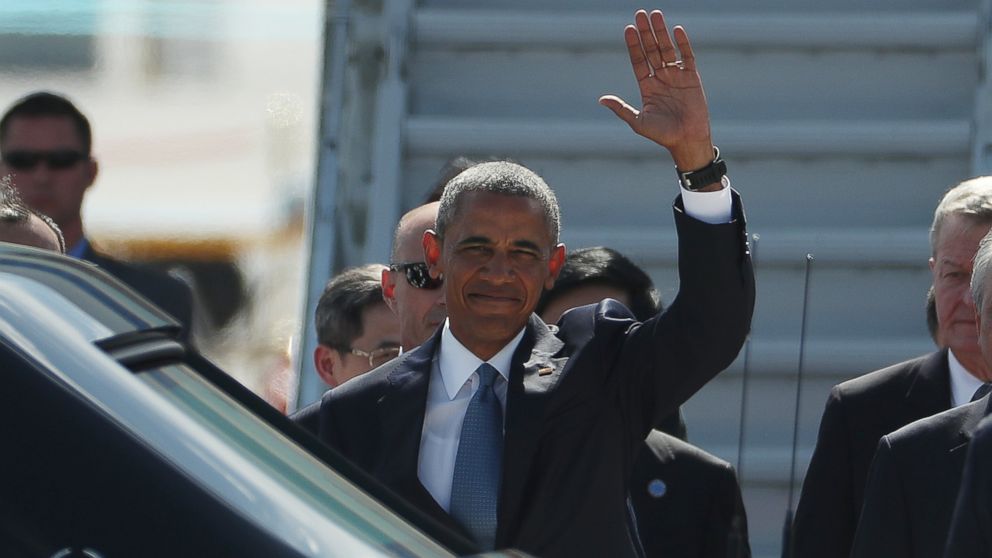Tensions with China Expected to Arise During Obama's Final Trip to Asia
What to expect from President Obama's final trip to Asia

— -- HANGZHOU, China -- President Obama touched down in Hangzhou, China, Saturday afternoon, marking his 10th and final trip to Asia that's expected to begin on a positive note, joining Chinese President Xi Jinping to ratify the Paris climate change accord, which strives to drastically cut carbon emissions.
But during the president’s trip here for the G20 summit, also his 10th and final summit with global economic powers, there are several contentious issues between the United States and host China that are anticipated to arise during bilateral talks with his Chinese counterpart.
Deputy National Security Advisor Ben Rhodes says President Obama will have a tough talk with President Xi on human rights, tensions around maritime issues in the South China Sea, cyber issues and some of the Chinese economic practices of concern, like theft of intellectual property.
Obama and Xi will begin the president’s trip by spending most of Saturday together. Following a welcoming ceremony, the leaders will formally sign onto the United Nations Paris agreement struck with nearly 200 countries last fall before holding a joint meeting at Xi’s Westlake guesthouse in the historic cultural region of China.
Afterwards, the presidents will continue their bilateral discussions over a working dinner, where the leaders are expected to review progress made on the global economy, climate change, and efforts to not only prevent the proliferation of nuclear weapons through the Iran deal, but also a shared concern about provocative nuclear development in North Korea, where the isolated country has continued to develop nuclear technology, including successfully launching a missile from a submarine – a destabilizing capability in the region that was recently assessed to be far from reality.
Sunday, Obama is expected to hold a bilateral meeting with Turkish President Recep Erdogan, where they will have their first discussions in the aftermath of a failed coup attempt in the NATO ally’s country in July, as well as their collaboration in the counter-ISIL campaign and efforts to promote greater stability in Syria, including the response to the continuing refugee crisis.
Obama will meet British Prime Minister Theresa May for the first time Sunday on the margins of the summit, according to a White House official who said the two leaders will discuss a "range of bilateral and global issues."
Senior White House officials have also hinted that a meeting on the sidelines of the G20 summit with Russian President Vladimir Putin is likely, affording Obama a final face-to-face discussion with his chief rival on Syria as well as Ukraine.
President Obama will also hold a private meet-and-greet Sunday with embassy staff in Hangzhou, including the U.S. ambassador to China, former Sen. Max Baucus.
The G20 summit kicks off Sunday afternoon with its first of five plenary sessions. Later, President Xi, playing host, will welcome leaders of the world’s top-20 economic powers with a banquet topped off with an elaborate cultural performance akin to an Olympic opening or closing ceremony.
On Monday, Obama will participate in four additional plenary sessions before ending his trip to China with a solo news conference.
Obama will then make an historic visit to Vientiane, Laos later Monday afternoon, becoming the first American president to travel to the country that continues to disarm countless cluster bombs dropped there by the United States during Vietnam War.